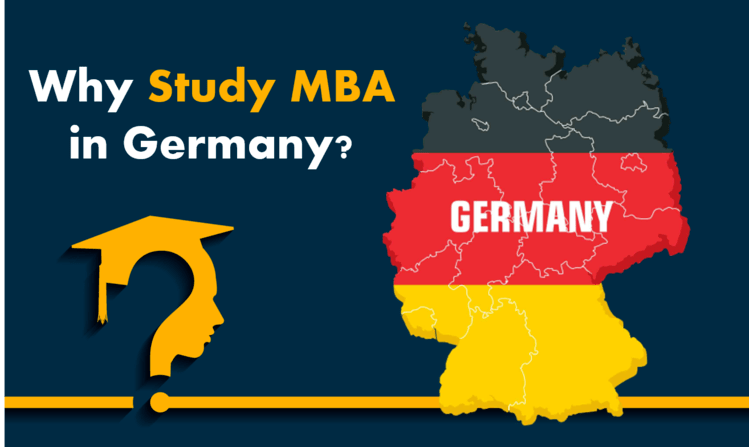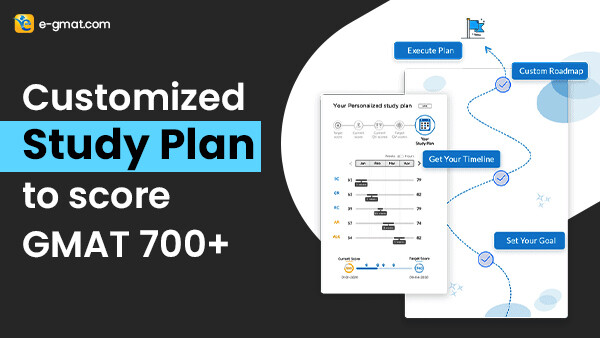MBA in Germany can last between 12 and 24 months. Some business schools make an exemption lasting 15, 18, or 20 months. For example, the ESCP – Berlin Campus offers an Executive and International management MBA program for 18 and 10 months, respectively. Similarly, Cologne Business School offers MBA in International Management for One year and two years.
Known as the world’s fourth-strongest economy and leader in the automotive and electrical industry, Germany is slowly picking up momentum as a sought-after study destination for MBA aspirants.
Apart from the breathtaking landscapes and the proximity to other European countries, an MBA in Germany can offer you lucrative career opportunities. Moreover, Germany’s work-life balance is more favorable than the USA or UK. Only 4% of employees in Germany work long hours compared to 12% in the UK and 11% in the USA.
But, is work-life balance the only reason we see more international students pursuing MBA in Germany? Well, it’s not!

This article looks at why you should pursue an MBA in Germany, the student and work visa requirements, top business schools/universities in Germany, and much more.
- MBA in Germany 2023-2024
- Why MBA in Germany?
- Top Universities for MBA in Germany
- Is an MBA in Germany Free?
- MBA in Germany – Entry requirements
- Requirements for an Indian Student to study MBA in Germany
- MBA in Germany – Do you require work experience?
- MBA in Germany – Career and Salary Post-MBA
- FAQs – MBA in Germany
Are you planning to do MBA in Germany? We can help you with a personalized study plan and give you access to quality online content to prepare. Write to us at acethegmat@e-gmat.com. We are the most reviewed GMAT prep company on GMAT club with more than 2500+ reviews and are the only prep company that has delivered more than 700+ scores than any other GMAT club partner. Why don’t you take a free trial and judge for yourself?
MBA in Germany 2023-2024
Here is a brief overview of what to expect if you plan to study MBA in Germany:
| Duration | 12-24 months |
| Popular MBA programs | Full-time, part-time, and executive MBA. Some colleges also offer distance learning programs |
| Average Tuition Fees | €30,000 to €50,000 for full-time MBA courses. For executive MBA courses fees can be around €90,000 |
| Top MBA programs in Germany | Some of the top MBA programs in Germany are ESMT berlin, Frankfurt School of Finance and management, Mannheim Business school, Otto Beisheim Graduate school of Management, and many more |
| Eligibility | You would require an undergraduate degree from a recognized institution, GRE/GMAT scores, and Proof of Language proficiency (English or German) |
| Minimum GMAT/GRE score | GMAT 550+ or equivalent GRE |
| Minimum work experience | The minimum work experience required for an MBA in Germany is one year. However, there are colleges that require at least 2 or 3 years of work ex |
| Average Salary offered (Top 6 MBA colleges) | €70,000 approx. |
| MBA in Germany jobs | Software Developers, programmer, and architects Health Nurse Sales Partner and Sales Representative Sales Manager and Product manager Personal administrator: HR Manager |
| Cost of Living | When compared to other European countries, the cost of living in Germany is quite reasonable. You will need approx. €853 a month to cover your living expenses in Germany as of 2020. The overall cost of living depends on two factors: Where you are settled in and What type of lifestyle you have |
Why MBA in Germany?
An MBA in Germany is becoming a popular study destination alongside Canada, Australia, the UK, and the US.
According to the World Bank, Germany is the 4th largest economy globally and the largest in Europe. It has countless job opportunities after graduation, and as per International Student Statistics 2020, around 69.2% of international students would prefer to remain in Germany and find a job. Moreover, since 2010 the international student community has grown by 53%.
Apart from the booming economy, Germany has affordable MBA fees, a low cost of living compared to other European countries, and favorable post-MBA visa conditions.
Check out the post-MBA work visa and immigration in Germany.
Here are the top 5 reasons to pursue MBA in Germany:
- Shorter duration of an MBA program
- Smaller Class size and Moderate entry requirements
- Low cost of MBA
- Post-MBA employment opportunity
- Ease of getting a work visa

Shorter duration of an MBA program
Compared to other top business schools globally, the German business schools offer a shorter MBA program, generally for a year. For instance, a full-time MBA program at Harvard, Stanford, or Kellogg is for two years compared to ESMT Berlin or Mannheim business schools, which offer a one-year program.
In fact, most European business schools offer a shorter duration of MBA programs than American business schools. So, depending upon your career goals, you can decide whether you want to pursue a one- or two-year MBA.
Know how to choose between a one-year and a two-year MBA program.
Smaller Class size and Moderate entry requirements
The smaller class size is one major differential factor that sets German universities apart from the top US or Canadian universities.
How is it beneficial for you?
Smaller class size in the MBA helps form a close-knit community where you get the opportunity to interact with your classmates more closely. Moreover, the faculty can pay better attention to your individual development needs.
GMAT Score requirement in Germany
While most B-Schools worldwide require a GMAT score, a few B-schools such as the TU Munich, Berlin School of Economics and Law, and Ludwig Maximillian University Munich, among several others, give more weightage to professional experience and do not require a GMAT score.
However, if we look at the top 5 MBA colleges in Germany, a GMAT score is required to get admission. The average GMAT score required to pursue an MBA in Germany is between 550 to 600, but a 600+ GMAT score can significantly increase your admission and scholarship chances. So, aim at scoring high on the GMAT.
Did you know a high GMAT score can make a stronger case for your application? We can help you with your GMAT preparation. Try out our free trial and get access to free online GMAT prep resources. We are the only GMAT prep company that has delivered more 700+ scores than any other GMAT club partner.
Low cost of MBA
On average, the tuition fee for a full-time MBA course in Germany ranges from $40,000 to $70,000, whereas in the USA, it can go above $100,000. If we compare the top 5 business schools in other countries, MBA tuition fee in Canada and UK is 1x, and in the USA, it is 2x more than in Germany.
Moreover, the cost of living in Germany is relatively low compared to other top MBA destinations.
| Country | Cost of living Index | Rent Index | Cost of living plus Rent Index |
| Australia | 80.75 | 38.67 | 61.28 |
| France | 77.59 | 27.07 | 54.22 |
| New Zealand | 76.31 | 35.79 | 57.56 |
| Canada | 71.45 | 35.06 | 54.62 |
| UK | 70.64 | 33.03 | 53.24 |
| United States | 70.55 | 42.56 | 57.60 |
| Germany | 67.85 | 29.61 | 50.16 |
MBA Scholarships in Germany
An MBA degree is often the biggest financial burden for international students, irrespective of the chosen MBA destination. But you can make it pocket-friendly by availing of scholarships.
Germany is ranked among the top countries where you can easily get scholarships. Thousands of scholarships are granted by the government and German MBA universities every year. DAAD, the largest scholarship organization, offers a variety of scholarships to international students.
Moreover, business schools in Germany like WHU Otto, Mannheim Business school, Leipzig Graduate School of Management, and Frankfurt School of Finance and Management offer scholarships to talented students.
Read our article where we share five ingredients to get a scholarship from top B-schools, based on the learnings of e-GMATers who have secured more than $200M in scholarship.
Post-MBA salary and employment opportunity
Germany is known to be driven by technology and innovation. Being an MBA student in Germany, you get exposed to many networking opportunities provided by a country that is home to businesses including BMW, Siemens, Mercedes-Benz, Deutsche Bank, and Bosch. Moreover, Germany boasts one of the lowest and most stable unemployment rates in the world.
While most of the top business schools globally have a high percentage of students going into Consulting, German business schools see a more diverse range of job roles for MBAs in industries like Manufacturing, Technology, e-commerce, pharma, energy, and financial services.
Germany is also ranked amongst the top countries for MBA salaries. With a bonus of around $16,000, you can expect a total remuneration of $94,000 annually.
Career Opportunities
One of the primary motivations for international students to pursue an MBA in Germany is getting access to working in other EU countries, offering them more job opportunities.
Please note that to increase your chances of getting an offer from a German employer, you need to get acquainted with the German language.
You can take up German language classes while pursuing your MBA, which can take anywhere between 7- 9 months to reach the B1 (intermediate) level. Besides, the German language is among the world’s most spoken languages. Many German businesses are relocating and expanding their network internationally. If you get a good grasp on it, you can access a deeper pool of jobs and career opportunities.
Ease of getting a work visa
Germany is the second easiest country to get a work visa post your graduation. Post-MBA in Germany, you get additional 18 months to find employment. Once you find a job, you are eligible for an EU blue card.
The EU blue card offers a residence and work permit to non-EU citizens who have professional experience and an employment contract in the country, with a minimum salary of approx. $67,000 per year. The EU blue card is granted for up to four years, and here are the benefits of it:
- Free movement in the Schengen area
- Permanent residence perspective
- Freedom of association
- Working and salary conditions equal to nationals
- Unemployment benefits
- Excellent conditions for family reunification
Apart from the work permit, Germany’s permanent residency policies and processes are less stringent than the USA and UK. If you have been living in Germany for five years on a German residence permit, you can apply for a German permanent visa. Moreover, after eight years of living there, you become eligible to apply for German citizenship.
Top Universities for MBA in Germany
MBA colleges in Germany provide different types of MBA, such as Executive, Online, and International. Based on the recent QS Global ranking 2022, out of 73 full-time MBA programs in Europe, six business schools in Germany make it to the list. Here are the top MBA colleges in Germany:
- Mannheim Business School
- Frankfurt School of Finance and Management
- WHU (Otto Beisheim)
- ESMT Berlin
- HHL Leipzig Graduate School of Management
- EU Business schools

The table below presents the full-time MBA fees, duration, salary, and ranking 2022 of the top business schools in Germany:
| Top Universities for MBA in Germany | Fees | Duration | Salary | Global QS Ranking Europe 2022 |
| University of Mannheim – Mannheim Business School | €39,900 | 12 + 3 months | €95464 | 16 |
| Frankfurt School of Finance and Management | €39,000 | 12 months | €67,000 | 18 |
| WHU University – Otto Beisheim School of Management | €40,500 | 12 months | €77,897 | 24 |
| ESMT Berlin | €43,500 | 14 months | €71,900 | 30 |
| HHL Leipzig Graduate School of Management | €39,500 | 12 – 21 months | €64,322 | 42 |
| EU Business schools | €20,850 | 12 months | €60,000 | 43 |
A high GMAT score can set you apart from the competition and help you get an admit at your dream business school. Start your GMAT Preparation with the most reviewed online GMAT prep company. Try out our FREE Trial Today!
University of Mannheim – Mannheim Business School
The Mannheim Business School offers full-time and part-time MBA for 12 and 24 months. Students who are opting for a full-time MBA have the option to complete the program either in 12 months or prolong their MBA experience by three months and get an additional Management Analytics certification or complete an internship.
The course fee for a full-time MBA is €39,900, with an average salary of approx. €95464. The majority of the MBA class 2022 were placed in technology (41%), followed by manufacturing (16%) and Financial Services (11%).
This B-school recommends a minimum GMAT score of 600 or equivalent GRE score.
If you are admitted to the Mannheim MBA program and get a GMAT score of 650 or an equivalent GRE score, the Business School grants you a reduction of €200 to acknowledge your good performance!
Frankfurt School of Finance and Management
The Frankfurt School of Finance and Management offers a full-time MBA program for 12 months. It also offers a Full-time Executive MBA for 18 months. Besides, students have the option of switching to a part-time course.
The average cost of a full-time MBA is €39,000, and the average salary for the MBA class 2022 is €67,000. The majority of the students were placed in financial services (19%), technology (19%), and healthcare (11%).
WHU University – Otto Beisheim School of Management
The WHU college in Germany offers a full-time MBA program for 12 months. The program offers opportunities for experiential learning to leadership and personal development.
The cost of a full-time MBA is €40,500, and the average salary of the MBA is €77,897. The majority of the students were placed in tech/start-up (39%), followed by consumer/FMCG (13%) and financial services (13%). The average GMAT score of the incoming class is 600+.
Planning to pursue your MBA in Germany? A 700+ GMAT score can help you get into your dream business school. Kickstart your GMAT preparation by signing up for our free trial. We are the most reviewed company on the GMAT club with 2500+ reviews. Write to us at acethegmat@e-gmat.com in case of any queries.
ESMT Berlin
The ESMT Berlin MBA is a 14 month full-time MBA course starting in January. It is based out of Berlin and focuses on technology, innovation, sustainable business development, and big data. A part-time MBA is also available with 24 months duration.
The MBA program focuses on general management and personal development and believes that 50% of an MBA experience is through new learning in the classroom and 50% by integrative personal development.
The average salary for the MBA class of 2020 is €71,900, and the cost of a one-year MBA is €43,500. The majority of the students were placed in technology and e-commerce (22%), followed by consulting (12%) and food (8%).
The average GMAT score for the latest MBA class is 640.
HHL Leipzig Graduate School of Management
The full-time MBA program at HHL Leipzig offers two types of program:
- Fast track: 12 months with three months of master thesis
- Advance track: up to 21 months, including optional term aboard or a professional internship
The tuition fees for the MBA program amount to €39,500. They offer a tuition fee reduction if you submit your complete application by the following Early Bird deadlines:
| Early Bird Application | Deadline | MBA Fees |
| Early Bird 1 | November 30 | €33,500 |
| Early Bird 2 | January 31 | €34,500 |
| Early Bird 3 | March 31 | €74,500 |
The average salary for the MBA class 2022 is €64,322, with the majority of students placed in e-commerce & internet (21%), followed by financial services (12%) and manufacturing (10%). The average GMAT score of its incoming class is 620.
EU Business School
The full-time MBA program at EU business school is for 12 months. They also offer a part-time MBA program that lasts for 24 months. EU’s MBA programs have been specifically designed for working professionals and those who have previously held managerial roles.
The tuition fees for the full-time MBA program amount to €20,850 (three terms)/ per term, €6,950.
Is an MBA in Germany Free?
There are many false advertisements out there that state MBA in Germany is for Free! It is not if you want to pursue your MBA from a recognized university.
In Germany, public higher education is offered for free (no tuition fees), but the best German MBA schools are privately owned and charge a certain fee. However, the MBA tuition fee in Germany is relatively lower than USA, Canada, and the UK.
So, Europeans, Germans, and non-Europeans can study in Germany free of charge – without a tuition fee. But there is a catch – You need to get residential status first.
So, if you are an Indian student, you first need to get a residence permit before you arrive in the country and then finish your studies in Germany. Two such universities that offer free cost MBA are Nürtingen-Geislingen University and TU Bergakademie Freiberg.
MBA in Germany – Entry requirements

Each MBA college in Germany has its own specific admissions requirements. However, some of the standard entry requirements to study MBA in Germany are:
- A recognized undergraduate degree
- GMAT or GRE scores
- English proficiency: IELTS/ TOELF
- 1-3 years of work experience
- Motivation and reference letters optional
Make sure that the degree you attain from your home country is recognized in Germany. If not, the University of your choice may require you to sit in a two-semesters preparatory course before you commence your regular studies.
Requirements for an Indian Student to study MBA in Germany
The entry requirement to study in Germany for Indian students changes from University to University, and it also depends on the chosen course. An Indian student who wants to pursue an MBA in Germany must have the following documents:
- Recognized bachelor’s degree
- Undergraduate Transcripts
- German or English Language Proficiency
- Motivation Letter
- References
- Work experience
MBA in Germany – Do you require work experience?
The minimum work experience required for an MBA in Germany is one year. However, there are colleges that require at least 2 or 3 years of work ex.
Here are some of the MBA colleges in Germany that are segmented based on work experience:
| One year | Two year | Three year |
| Bremen City University of Applied Sciences (Global Management MBA and MBA in International Tourism) | Hochschule Coburg MBA | ESMT MBA |
| Hochschule Bonn-Rhein-Sieg) CSR & NGO Management | HTW Berlin MBA if there is no previous degree | Frankfurt School of Finance & Management (MBA) in International Healthcare |
| GIMS German-Indian Management Studies | Frankfurt School of Finance & Management (MBA) | Berlin MBA |
| Cologne Business School | WHU MBA | Mannheim Business School (MBS) |
| Pforzheim University MBA | ESCP – Berlin Campus | |
| Furtwangen University HFU MBA International Business Management | ||
| Offenburg MBA in International Business Consulting (IBC) | ||
| WHU – Otto Beisheim Graduate School of Management (International MBA Program) | ||
| HHL Leipzig Graduate School of Management |
It is a common misperception that studying the German language is required for an MBA. Most of the MBA programs in Germany are taught in English. However, it is recommended that students learn German, at least to A1 level for better networking and job opportunities during MBA.
Kickstart your GMAT preparation by signing up for our free trial. We are the most reviewed company on the GMAT club with 2500+ reviews. Write to us at acethegmat@e-gmat.com in case of any queries.
MBA in Germany – Career and Salary Post-MBA

According to Emolument, the average salary for alumni and graduates with an insurance job is the highest ($185,000), followed by Executive Management ($152,000), and Financial Services ($133,000).
As per Glassdoor, the average base salary post-MBA in Germany is approx. € 69,064 ($82,215) per year. The company manager and Industrial engineer are two professions with the highest average earnings in Germany.
According to Dekra Arbeitsmarkt Report 2019, Electronic technicians are leading the job market. Besides, HR and Sales managers have made their debut in the top-ranking jobs in Germany.
List of careers in Germany that are high on demand
- Software Developers, programmer, and architects
- Health Nurse
- Sales Partner and Sales Representative
- Sales Manager and Product manager
- Personal administrator: HR Manager
The German MBA schools are researched-based universities aiming to prepare you with the knowledge and skills required in the job market. Companies like Adidas, Google, the European Central Bank, Volkswagen, and Porsche are located in Frankfurt – the business centers. Besides, all these companies hire MBA graduates from local universities.
Planning to pursue your MBA in Germany? A 700+ GMAT score can help you get into your dream business school. Kickstart your GMAT preparation by signing up for our free trial. We are the most reviewed company on the GMAT club with 2500+ reviews. Write to us at acethegmat@e-gmat.com in case of any queries.
FAQs – MBA in Germany
Generally, a full-time MBA is about 12-24 months.
Different MBA colleges have different deadlines. The best time to apply is between November to Jan for an October start.
Yes. An MBA in Germany is a viable option. With an affordable fee, favorable post-MBA visa conditions, and countless job opportunities, pursuing an MBA in Germany can be fruitful.
Yes. Most of the top MBA colleges in Germany require you to have 1-year work experience. It is recommended to check the admission requirements for your targeted college.
Most of the MBA colleges in Germany require you to take the GMAT. The average GMAT score for the Top 5 MBA colleges is above 600.










